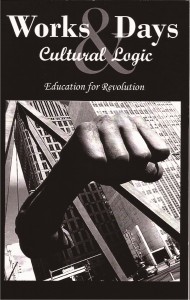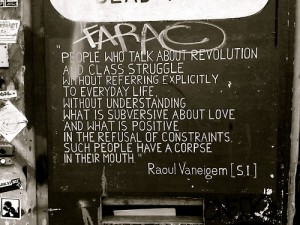BC Education Plan Linked to Private Corporations
Partnership between education ministry and not-for-profit with billionaire partners raises concerns.
By Katie Hyslop, 5 Oct 2012, TheTyee.ca
The government is proud of using citizen engagement and best practices to decide what and how to teach children in the BC Education Plan. But it’s also engaging at least one not-for-profit organization whose partners include technology corporations and private foundations that favour private market solutions to issues in the public education system.
British Columbia is one of 12 “jurisdictions” of the Global Education Leaders’ Program (GELP), a not-for-profit social enterprise organization based in the United Kingdom that according to its website is “committed to using the power of innovation to solve social challenges.”
“GELP’s ability to bring people together to think collectively and intensively about important issues around transformation is the key,” Rod Allen, B.C.’s superintendent of student achievement, says in a video posted on GELP’s website last month.
“It will be interesting for people to learn from us and we learn from them, but it’s what happens when you’re in the room together actively discussing and thinking about those issues that, to me, is the real magic.”
Run by the Innovation Unit, another not-for-profit social enterprise organization, GELP’s partners include technology corporations Cisco Systems Inc. and Promethean, and private foundations The Ellen Koshland Family Fund and The Bill & Melinda Gates Foundation, the latter of which openly supports the growth of charter schools in the U.S.
The relationship between the province’s Ministry of Education and GELP concerns Tara Ehrcke, president of the Greater Victoria Teachers’ Association, a local of the BC Teachers’ Federation (BCTF).
The government presented the BC Education Plan as a solution to the needs of B.C. students, but the partnership with GELP leads her to believe the plan is actually suited to the needs of technology corporations.
“I think [the Ed Plan’s] goals are related to allowing companies to have a piece of the [Kindergarten to Grade 12] market,” she said.
When GELP met government
The BC Education Plan, launched last October, promises improved access to digital technology for students at school and at home, and includes a partnership with telecommunications corporation Telus to connect all schools to the Internet.
The plan’s online presence is designed around the idea of a continuous discussion with the public about what it would like to see in the future for education in B.C., but the ministry hopes to have a new BC Education Program by 2014.
A key part of the plan is personalized learning, also referred to as 21st century learning. According to the plan’s website, this include identifying what makes an educated citizen and how the K-12 system can achieve that, a focus on the “core competencies, skills, and knowledge that students need to succeed in the 21st century,” and flexibility regarding whether a student learns in the classroom or through online learning.
In comparison, GELP has similar goals. The organization’s main objectives include advocating for 21st century learning and what it calls Education 3.0, a set of ideas outlined through a series of white papers co-written by software corporation Cisco Systems.
Elements of Education 3.0 include a focus on “holistic change” to the school system, “collaborative learning technologies,” and “a transfer of ownership from teachers to learners.”
According to a GELP case study on the BC Education Plan, the Ministry of Education was introduced to GELP when ministry officials met the organization’s co-founder Valerie Hannon at the International Congress for School Effectiveness and Improvement conference held in Vancouver in 2009.
The case study outlines stages of the BC Education Plan that are already underway, including redesigning curriculum, allowing school boards to set school calendars, and emphasizing school choice for parents. It notes the ministry has developed a team of 20 experts in order to deliver the plan, chosen by school superintendents, principals and vice-principals.
Future steps for the plan include a focus on reading — which the ministry announced earlier this year with the hiring of Superintendent of Reading Maureen Dockendorf — re-examining assessment, and a “decategorization of special needs education,” after which student achievement superintendent Allen is quoted as saying “no labels and no medical model. In a 21st century personalised [sic] world, I’ll tell you what a special education looks like if you can tell me what a ‘normal’ education is.”
BC Teachers’ Federation president Susan Lambert has concerns about the changes to special needs education, particularly since class size and composition, and the environment children live in at home, aren’t addressed in the BC Education Plan.
“We know that those are the two key factors around teaching and learning that build success; the BC Education Plan is completely devoid of any kind of conversation or addressing of those factors,” she told The Tyee.
“There’s this sense now that if you can just teach children correctly, if we can find a best practice that will allow every child to learn and grow, then we’ll be fine, we won’t have to put in special services for children with special needs, we won’t have to reduce class sizes so that children get more one on one attention. It’s duplicitous, because in fact it is designed simply to reduce the need for funding a high quality system, and that will be at the expense of every child.”
The Tyee contacted the Ministry of Education with questions about its relationship with GELP. A spokesperson told The Tyee the ministry consulted with several groups about the plan.
“The ministry staff talked to educators and other organizations in Alberta, Ontario, Finland, among other jurisdictions, and that was part of the research into the Ed Plan. The discussions and research into the Ed Plan began before the ministry engaged with GELP,” he said, although he could not confirm when that was.
Both Ontario and Finland are listed as GELP jurisdictions on GELP’s website, which outlines how much help they provide: “Each jurisdiction team is supported through six-monthly collaborative events, extended workshops, on-site and remote consultancy support, cross-country working groups and webinars. At the biannual Global Events, the whole GELP community meets in one of the participating countries to share leading-edge thinking and ideas. Teams work together to solve mutual challenges and offer critical support to one another.”
In a follow-up email, the ministry spokesperson told The Tyee although the BC Education Plan was officially launched last year, government has been looking at education reform for the last 10 years.
“There isn’t one moment in time when the research began, or research started with one specific organization – this has been an ongoing process. The ministry is always reviewing new and exemplary practices in B.C. and other jurisdictions across Canada and around the world that support students,” reads the email.
Value from every dollar
Innovation Unit, GELP’s parent organization, says in their mission statement they “have a strong track record of supporting leaders and organisations [sic] delivering public services to see and do things differently. They come to us with a problem and we empower them to achieve radically different solutions that offer better outcomes for lower costs.”
The Tyee couldn’t find a reference on the GELP website to the necessity of lowering the costs of education.
In an email to The Tyee, co-founder Hannon confirmed that working with finite resources is GELP’s specialty.
“Resources available to education are not infinite. Rightly and reasonably, the need and demand from education increases. Therefore we need to get the most value out of each $ spent,” Hannon writes, adding, “our sponsors have never attempted to exercise any ‘editorial control.'”
Ehrcke, who wrote a blog post on the ministry’s association with GELP, says Hannon’s focus on saving money jibes with the B.C. government’s history of closing down 176 schools in the last 11 years, citing a lack of funding.
She’s concerned that an organization with private corporations for partners doesn’t have the best solutions for a public education system in mind.
“It’s not surprising if your perspective is profitability for Cisco Systems or whoever, that your point of view would be ‘how do we expand into those markets?'” she says.
“I see public education as something that ought to be provided publicly with public funding and publicly managed, upholding principles of equity, and the private sector really shouldn’t have a part in that.”
GELP’s partners aren’t the only corporations the Ministry of Education has been linked to recently. Donald Gutstein, a School of Communications professor at Simon Fraser University, produced a research paper for the BCTF in June examining the BC Education Plan and speculating as to how the corporate aspirations of Pearson Education, a global education supplies and technology corporation, could fit with the ministry’s plans for education reform.
Pearson purchased the Ontario company The Administrative Assistants Ltd., which produced the software for BCeSIS, the troubled Ministry of Education database, in 2010.
One of the links Gutstein points out between the BC Ed plan and Pearson’s mandate is one that GELP shares: a focus on personalized or 21st century education. It’s a framework both Lambert and Ehrcke find misleading.
“It’s packaged under the guise of a love affair of technology and this criticism of the current system of not keeping up with the pace of change, which is so untrue,” Lambert told The Tyee.
Ehrcke says she isn’t against change in education, and acknowledges that all school boards will purchase computers. But she challenges the assumption that digital gadgets are necessary for learning, and believes the $346,326.66 her district spent on Apple products could have been better spent.
“From an educational point of view, you think about learning first, and then you think about what are the tools that we need to create the best learning environment. You don’t start with the tool and build your curriculum around it,” she says.
BCTF not consulted
Superintendent Allen says in the video on GELP’s website the partnership with GELP isn’t about answers to the ministry’s problems, but rather the correct framing of the questions.
“One of the things that we like about GELP is that it’s more about the questions than about the answers, because we’re just trying to refine the questions. Once you get to answers, it feels like then the inquiry stops,” he says.
“So we want increasingly interesting and engaging questions that lead us deeper and deeper into the work.”
Lambert is upset, however, that GELP was consulted on education reform when, after two years of asking to be part of a revisioning of education in B.C., the BCTF was only asked to consult with government earlier this year after the BC Education Plan was announced.
“We were asked by the [then] minister [George Abbott] during job action,” she told The Tyee.
“We declined during job action. We were at such huge odds at the bargaining table: we weren’t able to negotiate class size and composition, we weren’t able to bargain adequate salaries that would attract the brightest and best into teaching, we weren’t able to bargain prep time, so we couldn’t then go in with the minister and chat about education reform.
“It was hypocritical of them, I think, to ask us in after the development of the vision, even though they knew we had been demanding, asking, pleading to get in on the ground floor, they shut us out.”
Katie Hyslop reports on education and youth issues for The Tyee. Follow her on Twitter @kehyslop.

